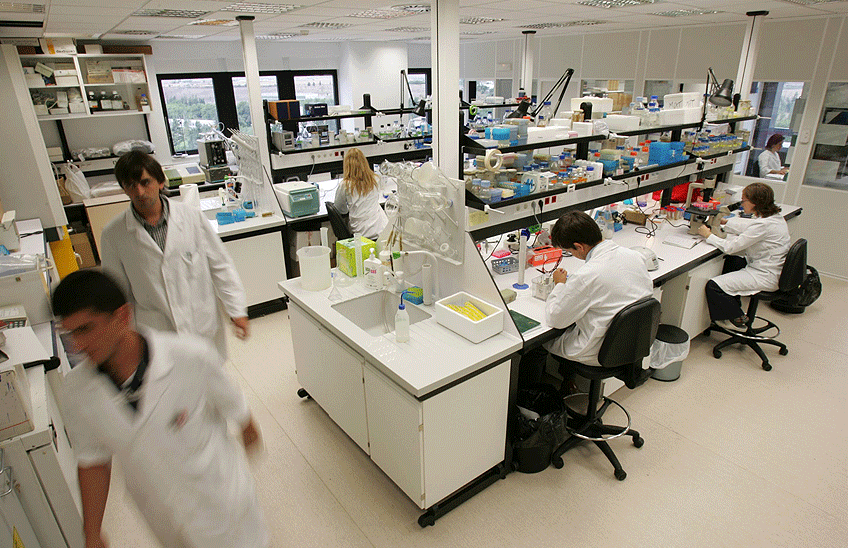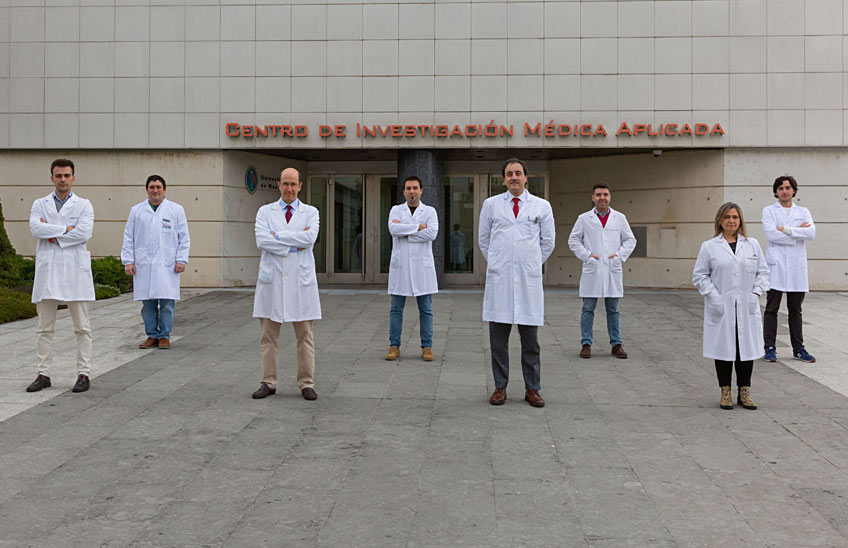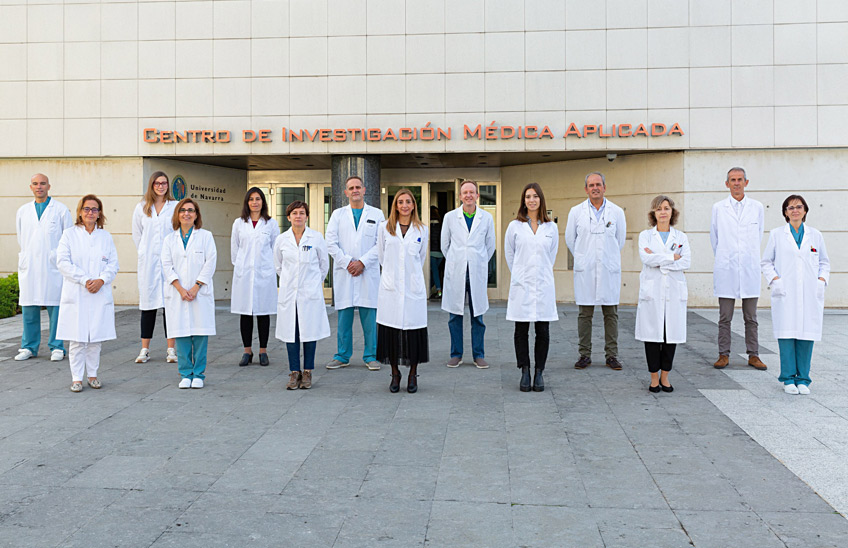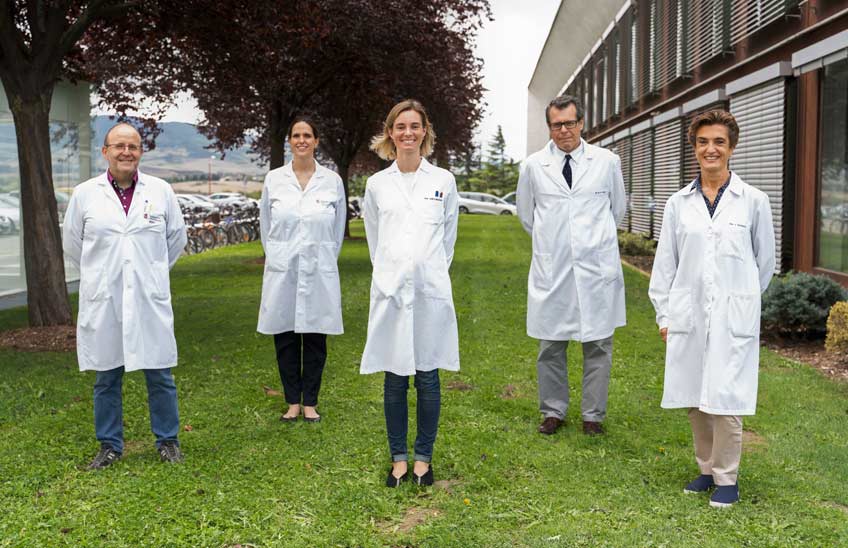Combination immunotherapy strategy dramatically increases survival in animal models of lung cancer
The work of Cima also confirms the relationship between the YES1 protein and the tumor microenvironment.
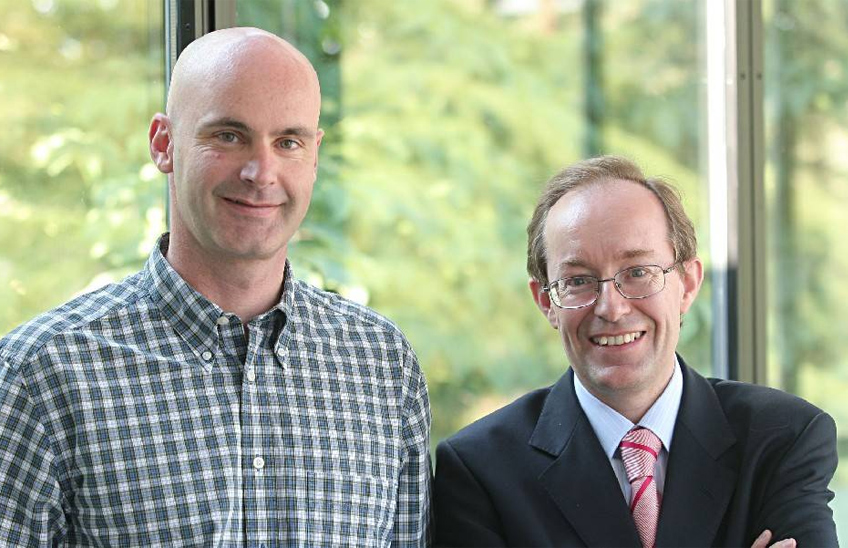
FotoCIMA/<br>Alfonso Calvo y Luis Montuenga, investigadores del Programa de Tumores Sólidos del Cima Universidad de Navarra
31 | 05 | 2021
Researchers at the Cima University of Navarra have shown that a combined immunotherapy strategy significantly increases the survival of animal models with the most frequent form of lung cancer (non-small cell). lung cancer (non-small cell lung cancer). The work, carried out thanks to the support of the association Spanish Against Cancer (AECC), opens the way to more effective therapies for patients with this disease.
Lung cancer is one of the most frequent tumors. Despite the progress in its prevention (reducing tobacco consumption) and the development of new therapies, the relapse rate is high, so it is essential to know the mechanisms of resistance to treatment.
"Our study, conducted by Esther Redín and Irati Garmendia as first authors, demonstrates that the combination of immunotherapy treatment (anti-PD-1) and a drug already C for the treatment of leukemia (dasatinib) produces a drastic reduction in tumor growth in these models," confirms Dr. Luis Montuenga, researcher senior at the Solid Tumors Program of the Cima University of Navarra and head of group of the CIBER Cancer (CIBERONC).
Anti-PD-1 therapy allows the patient's own defenses to recognize and attack tumor cells. This subject of therapies has been a great improvement in the treatment of non-small cell lung cancer. However, their effect is limited by certain healthy cells present in the tumor microenvironment.
Drastic tumor reduction
programs of study previous studies by the researchers described that the increase of a molecule (YES1) in a group of patients is associated with a worse prognosis and suggested the therapeutic effect of dasatinib. According to Dr. Alfonso Calvo, researcher of the Solid Tumors Program and co-director of work, "in this essay we have confirmed the involvement of YES1 in the tumor microenvironment. Specifically, the expression of this protein is associated with an increased issue of regulatory T cells (Tregs), which provoke an immunosuppressive environment. Following these results, we proposed the combined treatment of dasatinib and anti-PD1 and showed that it dramatically reduces tumor size."
This preclinical study, carried out at framework of the high school of research Sanitaria de Navarra (IdiSNA) and the Cancer Center (CIBERONC), has been published in the scientific journal Journal for Immunotherapy of Cancer.
reference letter bibliographic

